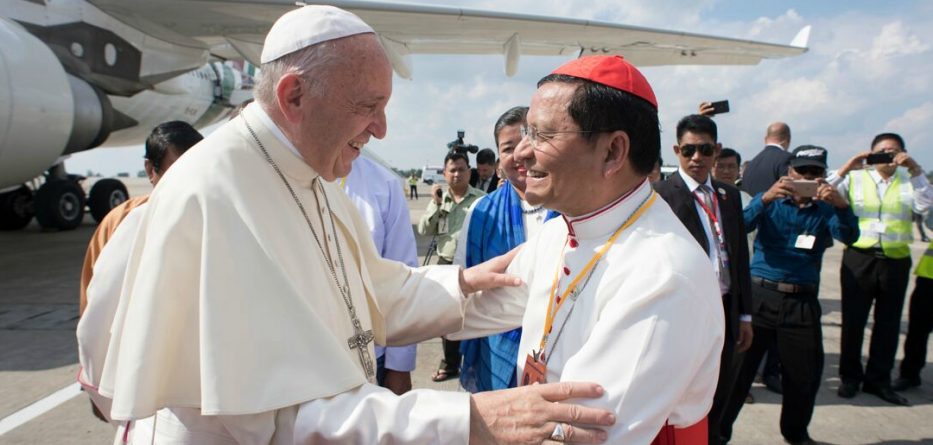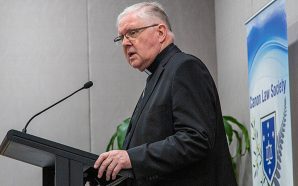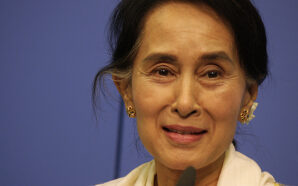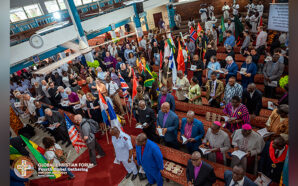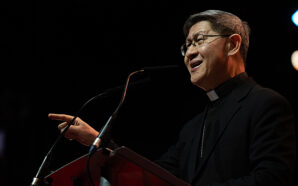His Eminence, Cardinal Charles Bo, Archbishop of Yangon, Myanmar gave Catholic Outlook the privilege of a wide-ranging interview on current issues faced by the Catholic Church in Myanmar.
During this special two-part interview, Cardinal Bo gives his insights into Aung San Suu Kyi, discusses the Rohingya people and appeals to the international community for help in rebuilding his country following decades of conflict. Cardinal Bo is currently touring Australia as a guest of Catholic Mission. Catholic Mission’s major Church Appeal in 2018 is raising funds for education programs in Myanmar backed by Cardinal Bo.
Part One of this interview was published yesterday.
Catholic Outlook: You are known as an advocate for interfaith dialogue, human rights and peace in your homeland, can you give us an update on how your work is progressing in these vital areas?
+Cardinal Charles Bo: I have been doing this work for many, many years especially with the Muslims in the Rakhine State, the conflict between the monks and the Buddhist community and the Muslims in that area, we could produce good results.
From the point of the government, as well as the Muslims and the Buddhist community, they never had any idea of interreligious dialogue, even the government, the Buddhist community, the Muslims, would never would accept this.
The government itself is aware of the need for inter-religious dialogue and its importance, so all around the country and in every city they have formed religious leaders around the country to sit together and to try have an understanding and to solve conflicts and problems.
People outside of the Church began to understand the importance of inter-religious dialogue. On our part, we have been quite familiar, including the Vatican, about inter-religious dialogue.
Even years ago, when we were talking in our Bishops conference to Christians of other denominations about this inter-religious dialogue, it is a remote idea they do not understand.
Now everybody including the Christians and other people began to understand this and we are working more on this, especially in the conflict area, even the Muslims have said they don’t have a voice, the Catholic Church is the one could speak on their behalf. They rely very much on our work.
Since a long history, we have been living together very peacefully, in a friendly way, with the Buddhist monks especially, like in our villages, half is Catholic and the other half Buddhist.
The Buddhist community has a respect for the Catholic Church and our work is going on well.
Especially lately, in our Bishops conference, we work on inter-religious dialogue and we have nation-building by the Church and peace building and we try to focus more on that.
Two or three years ago when we were talking to Aung San Suu Kyi about religious leaders working for peace in the country, she was a little hesitant, saying that religious leaders could work for their own religions but not come into the political area. We said that building peace is also the work of religious people.
Now I think now she accepts this and this coming October, there will be a conference for Religions for Peace and it involves religious leaders, the government, military personnel, diplomats, representatives from nearby countries, the EU and the UN. Aung San Suu Kyi is encouraging us on this.
CO: How can we, as Catholics in Australia, help support the Catholic Church in Myanmar?
+B: You can help us and especially help the country, first of all by removing the exaggerated news against the country, against the Church, against the Buddhist community, against Aung San Suu Kyi. You should have a well-balanced opinion about the situation and to find out about the reality.
The Church is focused on education, as we suffered in the last six decades, and we did not have quality education for decades. The result was very disastrous. Two to three generations of young people never saw any education and they just disappeared like that.
Our focus will be on the education of the children, the education of the young people. That will pave the way for a bright future and Catholic Mission has been much involved helping us build schools and opening private schools. That could be one area people in Australia could help us.
And of course, help us in the seminary to have real and solid formation and to produce real good formators, that would be essential.
As the country is being opened, we need to provide moral education to our children and our young people as this is important.
CO: How was the recent Papal visit, the first of any Pope, to Myanmar?
+B: Although in the beginning we had some difficulty between the government and the Vatican, when the Pope came, it was very relaxing.
The celebration itself was very wonderful.
The Pope said last time we met in Rome, he did not refuse anybody that wanted to meet him, including the military general, the government, the president, the Buddhist monks, and religious leaders. He met everybody practically, including the young people.
The celebration was very OK. He came with a theme of love and peace and he emphasised that.
The visit is over, but he left with us a lot of homework, especially building peace in the country, especially trying to be the healer of the visible and invisible wounds in the country.
He was going more for reconciliation. The reading at the time was comparing the wisdom of the world with the wisdom of Christ and if we follow the wisdom of the world then we have retaliation and revenge. If we follow the wisdom of the cross, then there is peace, reconciliation, love for others and seeing others and my brothers and sisters.
So, he was very effective. Outwardly the people and the Buddhist community came to respect us more.
Before in Myanmar, we were known just as one of the Christians, but with the coming of the Pope, the Catholic Church appeared more able to work and help other people.
A step was opened especially for building peace with the government, as well as access to the military. That is the advantage we have with the Pope’s visit.
After the Pope’s visit, for the first time in 60 years, we publicly celebrated Christmas in Yangon and we had a public procession. The prestige, esteem and respect for the Pope and the Catholic Church, we have for the first time, the whole city celebrated Christmas for three days and nights.
CO: You have spoken about being the Catholic Church in Myanmar being the Prophetic Church, can you explain what you meant by this?
+B: Prophetic in a sense that we are devotees to become the disciplines of Christ.
From maintaining these past six decades, to now to becoming, with the guidance of the Pope, to move outward to assist others without discrimination to any race or any religion, to help in a practical way and not just keep within ourselves.
To become outward going, assisting not just in the religious sense, assisting to develop education, freedom, respect and being able to live with others among different ethnic tribes and live in peace.
CO: In 2015, you were made Cardinal by Pope Francis, how did you feel when you received the news?
+B: The news came from Australia and not from the Pope [Laughs]. My niece in Perth, she phoned me after seeing it on television after the Angelus [Laughs]. My niece found out before me! I was in India at the time.
When he visited us, I said I never received any previous news before the appointment and he said, I made consultations and made the appointments.
From that time, the first two to three groups of cardinals appointed, they don’t have don’t have any previous information, he just simply announced it. It was a surprise for many of the cardinals.
He said in private, when we received the red hat, the red hat is the colour of blood, in a country like Myanmar, the Catholics are a small minority so you need to be bold and have the courage to speak the truth and work for peace.
CO: Can you give us a summary of the size of the Catholic Church in Myanmar and the number of Catholics, dioceses, and priests?
+B: 900 priests, 16 dioceses and 800,000 Catholics.
CO: Are there any final messages you would like to share with the Diocese of Parramatta and the people of Western Sydney and the Blue Mountains?
+B: First thing, we are very grateful for all the help they are giving and the heart they have for the people of Myanmar. Thank you for that. If they could continue their support, especially the building of the education system in Myanmar, as we are now allowed to have private schools.
Through things like Catholic Mission, they could assist us the Myanmar people. When we say the education of the Catholic Church, we are very much aware this is not only for the Catholics but also other religions, especially the Buddhist community who would be the majority.
Without any discrimination of race or religion, we try to work for the people of Myanmar. If they could assist in the field of education and of course other needs, with close contact between government to government, trying to share and mutual sharing especially of the exposure of our parliament members.
Even if we could give education to the military personnel so that would be fine.
CO: Is there a message would you like to share with Catholics, not just in Australia but around the world, who are worried about the Church in Myanmar?
+B: There are two messages.
The world is very much focussing on the Rohingya issue. I would also like to highlight the problems we are having the civil wars with the ethnic groups, especially like the Kachins, they could also be helped in the IDP camps [internally displaced person].
They could also focus on how to help Myanmar achieve peace and a ceasefire between the military and the Kachin groups.
Focus not only on the Rakhine State, but also equal focus on the Kachin State.
The second one, regarding the news, when the news is exaggerated in the international community, they should listen to both sides, the reality in the country, meeting people.
When you listen to only one side is doesn’t help and doesn’t solve the problem.
CO: Your Eminence, thank you for your time and for this interview.
+B: Thank you, you’re welcome.
Part One of this interview was published yesterday.




